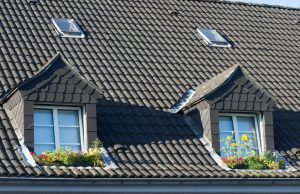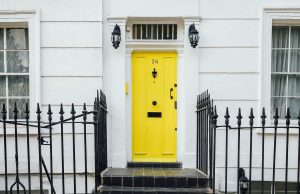
Whether you’ve had a problem with bird nesting in the past, or you’ve recently moved and want to avoid them getting cosy on your rooftop before the season arrives, there are steps you can take to prevent it from happening.
Taking these steps before the birds start to nest is very important. Once they’ve made their home, it can be difficult to get rid of them without the help of professionals.
There are actually laws in place to protect birds once they’ve nested, which is why it’s so important to prevent them from nesting in the first place.
Since it’s key to do everything you can before the time comes, make sure to follow these steps to prevent attracting bird nesting at your home.
Steps to Prevent Nesting
Keep Things Clear
Birds will use a range of materials to create their nest, so if they see any type of rubbish they can use to help build a nest, they’ll be more attracted to your property.
By getting rid of all types of rubbish around your house, birds have less of a reason to nest around you.
Also, all types of rubbish are likely to attract lots of other pests – not just birds. So the cleaner you leave your property, the less attractive your property will be to any type of unwanted animal.
Seal Any Holes
Small gaps and holes are perfect for birds to nest in, especially if they’re on your roof. You should make it a yearly job to check your roof for gaps before bird nesting season so you can fill them in before they start looking for a new home.
Minimise the risk of birds nesting in your roof by using wire mesh over any holes, or you could use something to seal your roof completely. If you’re unsure how to do this, you can get a professional over to fix the gaps.
Bird Deterrents
Another way to prevent bird nesting is using deterrents on your roof. This can include spikes, but these are usually used on commercial buildings such as shops and hospitality venues.
Getting spikes for your home may seem drastic, but there are versions you can get that aren’t too visible to the eye. However, if spikes aren’t for you, there are other bird deterrents to use.
You can try to decoy bird predators like hawks etc. which will work like a scarecrow, preventing the birds from coming to your house.
However, one deterrent that should be avoided is the use of gels. These aren’t poisonous, but they can cause severe damage to a bird’s eyesight.
You could also create artificial nests for birds in your garden so they won’t need to make their own on your roof.
Prevention is Crucial
Once a nest is active, it can’t be damaged. As a rule under the Wildlife and Countryside Act, the young must have left the nest before it can be removed.
This means that as soon as a bird creates a nest on your property, you can’t do anything about it until it becomes empty again.
The only other way an active nest can be dealt with by professionals is if it can be proven that action is required for public health safety.
And some birds will return to a nest every year, so you’ll want to prevent them from building a nest as much as possible to avoid them coming back repeatedly.
Birds to Look Out For
There are hundreds of bird species, around 600 in the UK. But not all birds will nest around your property. The main types of birds to be wary of are house sparrows, starlings, swifts, swallows, blue tits and jackdaws. If you have birds nesting on your property, it’s likely to be one of these types of birds.
Bird Nesting Season UK
If you’re thinking about using prevention techniques for bird nesting, it’s important to know the key dates for bird nesting season. In the UK, it usually begins around February and lasts until August.
Before nesting season begins, you should make these checks and put up some deterrents to avoid birds choosing your house as their new home.
To Sum Up
Now you’re aware that it is unlawful to remove a bird’s nest if it isn’t causing any health hazards, you might be more willing to prevent the nesting in the first place. By checking your property before nesting season begins, you can avoid the hassle of bird nests near you.













